Books
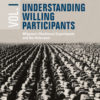
Understanding Willing Participants: Milgram’s Obedience Experiments and the Holocaust
By Nestar Russell. Horrified by the Holocaust, social psychologist Stanley Milgram wondered if he could recreate the Holocaust in the laboratory setting. Unabated for more than half a century, his (in)famous results have continued to intrigue scholars. Based on unpublished archival data from Milgram’s personal collection, volume one of this two-volume set introduces readers to…
Read more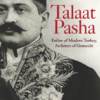
Talaat Pasha: Father of Modern Turkey, Architect of Genocide
By Hans-Lukas Kieser. Talaat Pasha (1874–1921) led the triumvirate that ruled the late Ottoman Empire during World War I and is arguably the father of modern Turkey. He was also the architect of the Armenian Genocide, which would result in the systematic extermination of more than a million people, and which set the stage for a…
Read more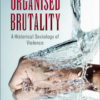
The Rise of Organised Brutality. A Historical Sociology of Violence
By Siniša Malešević. Challenging the prevailing belief that organised violence is experiencing historically continuous decline, this book provides an in-depth sociological analysis that shows organised violence is, in fact, on the rise. Malešević demonstrates that violence is determined by organisational capacity, ideological penetration and micro-solidarity, rather than biological tendencies, meaning that despite pre-modern societies being exposed…
Read more
Täterhandeln im Nationalsozialismus. Ein Unterrichtsmodell zum historischen Lernen über die Shoah
By Eva Lettermann. Die Autorin setzt sich sowohl fachwissenschaftlich, fachdidaktisch als auch familienbiografisch mit individuellem Täterhandeln im Nationalsozialismus auseinander. Die Motivation hierzu war die kritische Aufarbeitung der Biografie ihres Großonkels, eines NS-Verbrechers in den besetzten Niederlanden. Aufbauend auf den theoretischen Erkenntnissen konzipiert die Autorin ein Unterrichtsmodell zum historischen Lernen über die Shoah für den Geschichtsunterricht…
Read more
War Crimes Trials in the Wake of Decolonization and Cold War in Asia, 1945-1956
Kerstin von Lingen (ed.). This book investigates the political context and intentions behind the trialling of Japanese war criminals in the wake of World War Two. After the Second World War in Asia, the victorious Allies placed around 5,700 Japanese on trial for war crimes. Ostensibly crafted to bring perpetrators to justice, the trials intersected…
Read more
Social Aspects of Memory: Stories of Victims and Perpetrators from Bosnia-Herzegovina
By Alma Jeftic. Social Aspects of Memory presents a compelling study of how ordinary people remember war events. Focusing on the divided city of Sarajevo during the Bosnian War, the book adopts a unique approach, looking at how perpetrators and victims (as well as new generations) manage in the aftermath. Drawing on the author’s own empirical…
Read more
Holocaust Perpetrators of the German Police Battalions: The Mass Murder of Jewish Civilians, 1940-1942
By Ian Rich. Holocaust Perpetrators of the German Police Battalions is the first comprehensive English-language study of the structures and actions of German Police battalions in Poland and Ukraine between 1940 and 1942. Using these case studies, Ian Rich draws attention to the actions and motivations of individual lower-ranking policemen who participated in the mass…
Read more
Stormtroopers: A New History of Hitler’s Brownshirts
By Daniel Siemens. The first full history of the Nazi Stormtroopers whose muscle brought Hitler to power, with revelations concerning their longevity and their contributions to the Holocaust Germany’s Stormtroopers engaged in a vicious siege of violence that propelled the National Socialists to power in the 1930s. Known also as the SA or Brownshirts, these…
Read more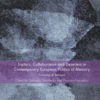
Traitors, Collaborators and Deserters in Contemporary European Politics of Memory: Formulas of Betrayal
Edited by Gelinada Grinchenko and Eleonora Narvselius. This volume offers a multidisciplinary approach to shaping and imposition of “formulas for betrayal” as a result of changing memory politics in post-war Europe. The contributors, who specialize in history, sociology, anthropology, memory studies, media studies and cultural studies, discuss the exertion of political control over memory (including…
Read more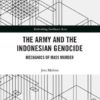
The Army and the Indonesian Genocide: Mechanics of Mass Murder
By Jess Melvin. For the past half century, the Indonesian military has depicted the 1965-66 killings, which resulted in the murder of approximately one million unarmed civilians, as the outcome of a spontaneous uprising. This formulation not only denied military agency behind the killings, it also denied that the killings could ever be understood as…
Read more
